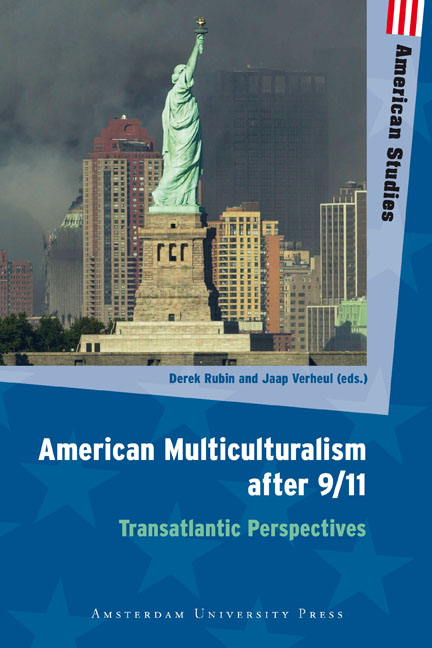“The Dead Are Our Redeemers”: Culture, Belief, and United 93
Published online by Cambridge University Press: 21 January 2021
Summary
It has become something of a commonplace to suggest that one of the fatalities of 9/11 – alongside the US Constitution, democratic institutions, procedural justice, and civil liberties – has been multiculturalism, especially in the form of broad tolerance for diverse cultures and their practices. In no way do I want to deny the fact that in the weeks and months following 9/11 there was a marked upsurge in xenophobia and its accompanying violence. Moreover, even the most superficial of web searches will yield evidence of a continued virulent loathing of multiculturalism on the part of radical religious conservatives. In European countries, too, the “War on Terror” became an excuse for banning forms of religious expression, such as the wearing of headscarves.
However, I want to argue that the case has always been more complicated than such a narrative would allow. President George W. Bush himself famously issued a call after 9/11 for increased tolerance of Muslims and their culture. What can be called “corporate multiculturalism” appears to continue on unabated in the present. In this form of managed multiculturalism, diversity has become an administrative instrument where, as Susan Hegeman argues, “it seems to come down to the rather trivial matter of one's Christmas dessert menu, which is to say that cultural difference (already somewhat shallowly conceived) is nothing much more serious than a set of innocuous consumer choices.”
According to Slavoj Žižek, the particular concept of culture underlying this form of multiculturalism represents “the very field of disowned/impersonal beliefs – ‘culture’ is the name for all those things we practice without really believing in them, without ‘taking them seriously.’” Žižek further argues that what remains most intolerable for multicultural tolerance, especially in the form practised by the Bush administration or corporate America, are those who in fact act according to deeply held beliefs: “And is this also not why we dismiss fundamentalist believers as ‘barbarians,’ as anticultural, as a threat to culture – they dare to take their beliefs seriously?” However, it is exactly at this point that the conservative anti-multicultural position and liberal multiculturalism would seem to converge. For clearly evident in their common stance toward “others,” such as Muslim fundamentalists, is what Friedrich Nietzsche describes as ressentiment, a destructive envy aimed at those imagined to possess a secret key to happiness – in this case, the capacity to “take their beliefs seriously” and to act accordingly.
- Type
- Chapter
- Information
- American Multiculturalism after 9/11Transatlantic Perspectives, pp. 81 - 92Publisher: Amsterdam University PressPrint publication year: 2012

